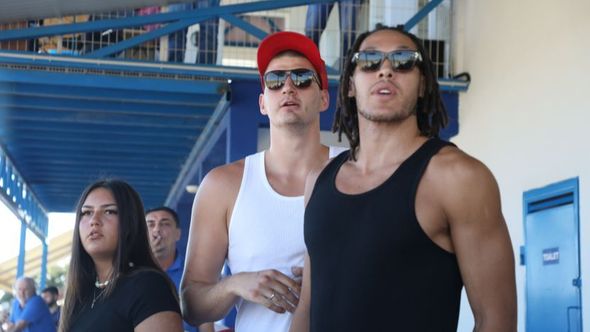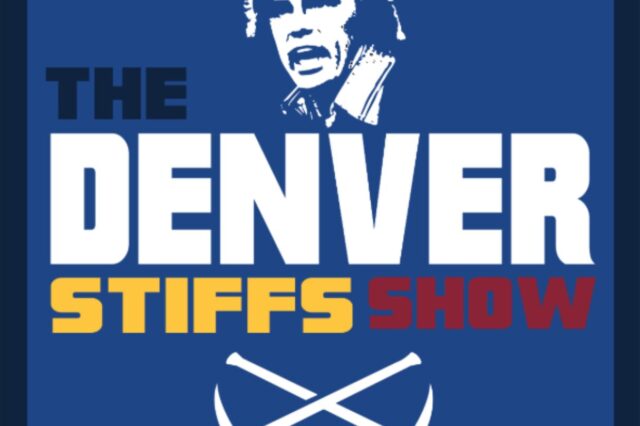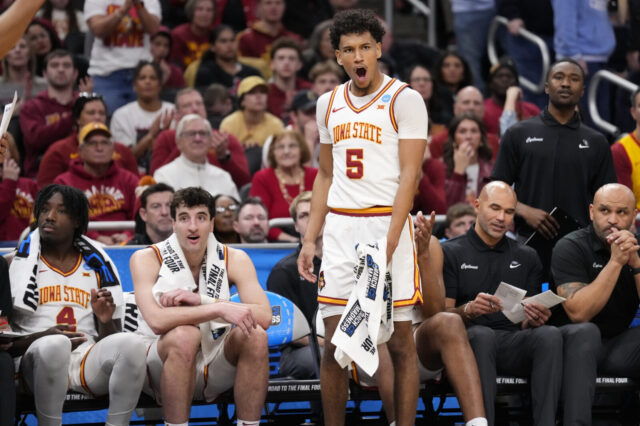It’s about that time again; the Denver Stiffs mailbag!
Thank you for sending in your questions. Every Thursday, I do my best to put these out there and answer what I can with the time and space that I have. This week’s batch of questions is a good one, so strap in and enjoy Denver Nuggets trade deadline, playoffs, and general discussion.
One of the more bittersweet parts of the season has been checking in on the Minnesota Timberwolves. Though the T-Wolves have struggled overall, they feature three former Nuggets from last year’s squad. Malik Beasley has blossomed into a 20-point scorer, Juancho Hernangomez has struggled to stay on the floor, and Jarred Vanderbilt, a player who struggled to develop his game in Denver, has played 30 games and started 13 himself.
Vanderbilt has really proven himself on the Wolves, showcasing the talent the Nuggets were hoping to see while he was here. He’s averaging 5.7 points, 5.7 rebounds, 1.6 assists, 1.0 steals, and 0.6 blocks in 18 minutes per game, versatile numbers that represent just how impactful he can be in extended minutes. The Nuggets are happy for him, though a little bit disappointed that he couldn’t be doing it in a Nuggets uniform.
Keep in mind that Denver’s plan when they initially made that trade was to keep Jerami Grant on a long term contract, possibly integrate Bol Bol into the mix, and surround Denver’s young players with veteran pieces to show them the ropes. Vanderbilt was a player they drafted who represented a second round flyer, but the Nuggets weren’t going to go out of their way to develop him. Had he shown something more in a Nuggets uniform, then he might have stuck around.
In addition, Denver acquired Zeke Nnaji and sent noted Houston Rockets foe Clint Capela to the Eastern Conference, a move that helped break up the Rockets entirely. There were more reasons to do the deal than initially meet the eye, and the Nuggets took all factors into account. They knew Vanderbilt might succeed elsewhere. They traded up in the second round of the 2018 Draft to acquire him for a reason. Sometimes, things happen, and for a Nuggets team with championship aspirations, development isn’t always their top priority.
Lineup data is always very interesting. It helps me refocus on what has worked for the Nuggets, what hasn’t worked, and what we still don’t know. One of the things that’s clear based on the data: almost every lineup combination works with Jamal Murray on the floor. He and Gary Harris are tied for the highest net rating on the team at +8.0 per 100 possessions, a good number.
However, there are other combinations that have worked well too. When Murray shares the floor with Michael Porter Jr. that net rating increases to +12.8. That’s Murray’s highest net rating duo and an indicator that Denver can still figure things out with the top talent they have. The second highest net rating pairing for Murray? Facundo Campazzo. When the two share the floor, the Nuggets score 12.1 points per 100 possessions more than opponents, an excellent number.
The stats say it HAS worked so far, and it’s unsurprising that Murray would excel next to a facilitating point guard and quality defender. Murray’s scoring versatility, as well as Campazzo’s near 40% three-point shooting, allow those two to be interchangeable in Denver’s lineups. The Nuggets generate a 123 offensive rating when those two share the floor together, and I don’t see that changing in the playoffs?
Now, Campazzo’s size certainly makes him matchup dependent, but there are some teams he might be able to excel against in the West playoff field: could he pester the Utah Jazz and Mike Conley? Could he annoy the Portland Trail Blazers and Damian Lillard? Could he keep up with Patty Mills and the San Antonio Spurs? What about Stephen Curry and the Golden State Warriors?
None of that would surprise me at all, and as long as he doesn’t get stuck playing post defense too often, I think he could be impactful.
I do.
It’s hard to say much more than that. The odds are working against me with Denver’s record in prior trade deadlines. The last time Denver made a win-now move was at the 2018 deadline: Denver orchestrated a three-way trade by sending Emmanuel Mudiay to the New York Knicks and receiving veteran point guard Devin Harris from the Dallas Mavericks. That trade nearly paid off for Denver, even though they missed out on the playoffs in the last game of the season.
This season feels closer to that year, 2017-18, than it does to 2019-20. Denver didn’t need to make any panic trades last year. They actually reduced their overall talent level by sending Beasley, Juancho, and Vando to the T-Wolves for a 2020 first round pick. There will be no moves made like that one this trade deadline. Denver doesn’t have the luxury.
I see the Nuggets making a smaller move on the fringes to bolster their rotation and clear up some confusion about the roster. Right now, the Nuggets have several players competing for a limited number of spots, and it’s unclear which players make up their playoff rotation at this point in time. My guess is that Denver makes a trade (or multiple) that clears up the confusion for everyone involved.
While Michael Porter Jr.’s comments postgame in Denver’s win over Portland were a good indicator of his buy-in level, I tend to agree that the situation needs to evolve beyond just Porter trying to be the best supporting player he can be. He doesn’t see himself that way, and the Nuggets don’t see him that way either. At least, they shouldn’t.
Porter’s developmental curve is by far the most fascinating part of this Denver Nuggets roster. On one hand, he was compared to scorers like Kevin Durant and Carmelo Anthony coming into the draft. On the other hand, the Nuggets don’t need THAT version of Michael Porter Jr. to be the best team they can be. They need Michael Porter to be 6’10” Klay Thompson, or even something resembling what Jerami Grant was for Denver in the playoffs last year. Doing so takes personality that’s okay with assuming a role that features trading individual glory for the success of the team. Porter has the talent to be more, but the coaching staff knows trying to do so immediately will be worse for Porter’s development as a complete player.
The balance that the Nuggets and Porter strike between these two desires is key, and it involves trust, promises, and a willingness to be patient. If Porter does what is asked of him to the best of his ability, then the Nuggets will probably need to reward him with that shiny contract you describe. Porter may or may not sign that contract though. In doing so, he’s going to also want assurances that the Nuggets continue to do what’s best for him by developing his entire offensive game, not just the parts that accentuate Denver’s current strengths.
As long as all parties are on the same page, I think there’s a good chance Porter signs an extension this offseason. It may not be a max contract as Porter hasn’t quite earned that, but I would be surprised if the guarantee amount was anything less than $100 million. Porter will want the most money he can get, and if he goes about his development in Denver with an open mind and open heart, the Nuggets have proven already that they are willing to reward their players.
Let’s just do a quick opposition ranking of the teams that currently sit in the playoff picture, selecting Denver’s potential opponents from easiest to hardest matchup:
- San Antonio Spurs — Though the Spurs have proven their worth several times over, I still believe their system lends itself to some of Denver’s greatest advantages. LaMarcus Aldridge and Jakob Poeltl are no match for Jokić defensively, and the Spurs don’t have an answer for Michael Porter Jr. when he’s locked in.
- Golden State Warriors — Stephen Curry might be the most dangerous player in the NBA to face in a playoff series outside of LeBron James, but the rest of the Warriors roster gives me pause. Kelly Oubre is coming around, and Draymond Green has always been impactful; however, this is another team that has no answer for Jokić.
- Portland Trail Blazers — Damian Lillard has truly leveled up, but the Nuggets have shown they can match up with him by playing two players at the level. There isn’t enough firepower around Lillard, even when CJ McCollum and Jusuf Nurkic return, for me to feel too queasy about this matchup again.
- Phoenix Suns — Chris Paul and Devin Booker are dangerous, while Deandre Ayton gave Jokić trouble in Denver’s matchups against the Suns this year. In addition, their wings space the floor quite well and have a tendency to get hot quick.
- Utah Jazz — The Nuggets are the perfect matchup against the Jazz with their two-man game of Murray and Jokić to pull Gobert out of his comfort zone, but don’t be fooled. This Jazz team has been excellent to start the year, and any matchup against them is liable to come down to the wire.
- Los Angeles Clippers — Kawhi Leonard and Paul George present problems for anyone, but with Jerami Grant in Detroit, the Nuggets are especially vulnerable. Jamal Murray has improved enough to make this a challenge, but the Clippers would certainly be favored.
- Los Angeles Lakers — Until the Lakers don’t have LeBron James and Anthony Davis, they will always be Denver’s toughest matchup. Always.
No. Nor should he be as long as he brings Michael Porter Jr. along.
The Nuggets were blindsided by Grant’s departure, and that left Connelly, Malone, and the Nuggets organization in a bind. The Nuggets are certainly capable of doing great things, but I still feel that they must find a competent replacement for what Grant offered them in the playoffs last year: utility, versatility, and competence in the face of top matchups in the conference. Without him on the roster, the job was always going to be more difficult for Malone, and everyone should appreciate that reality.
If the Nuggets finish the season as a 6th, 7th, or 8th seed and are forced to play the Jazz, Clippers, or Lakers, then I don’t think anyone would blame Denver for being ousted from the playoff picture. Those teams have proven to be very good, and the Nuggets weren’t put in the best position to win by moves that out of Michael Malone’s hands.
If the Nuggets were to finish in the 4th or 5th spot, or wherever they don’t have to face the aforementioned trio of elite West teams, and they STILL lost in the first round? It’s tougher to evaluate. For example, if the Nuggets lose to the Suns in seven games with Michael Porter Jr. averaging 35 minutes a night and gaining valuable experience? I doubt the front office and ownership would consider letting Malone go. Development is a rocky road, and no one expects Denver’s record to be perfect if they are relying on mostly inexperienced players.
Now, if Malone can’t figure out how to deploy Porter and instead benches him and limits his minutes, that’s another story entirely. At that point, the Nuggets may be forced to choose between their long term head coach and the star prospect the Nuggets drafted and haven’t seen developed fully. The Nuggets have made it clear internally how important the development of Porter is. Everyone knows it. If it still can’t get done, and Denver loses in the first round anyway against a matchup they could have won? Then that might change the dynamics.
I don’t think it will come to that though, and it’s because of the same reason that I had faith in the Nuggets last season: I believe in Denver’s talent. I believe in Jokić, Murray, and Porter. I think the Nuggets have a good mix of pieces around them to make things happen as well. I think Porter will prove himself on the big stage this season, and Malone will be rewarded for the agonizing moments throughout the year. He has to maintain faith and trust though, just like he maintained trust in Murray early in his career.


